Computing
ICDL Professional
The Computing 1.0 module sets out essential concepts and skills relating to the use of computational thinking and coding to create simple computer programs.
Many job roles that are not explicitly focused on software development required an understanding of the principles of computational thinking and the foundations of coding. The Computing module covers core computational thinking techniques like problem decomposition, pattern recognition, abstraction and algorithms as well as practical skills relating to coding.
Module overview
| Category | Skill set |
|---|---|
| Computing terms |
|
| Computational thinking methods |
|
| Starting to code |
|
| Building using code |
|
| Test, debug and release |
|
What are the benefits of this module?
- Covers the key skills and main concepts relating to computational thinking and coding.
- Certifies best practice in computational thinking and coding.
- Introduces concepts and skills that are essential for anyone interested in developing specialised IT skills.
- Assists in developing generic problem solving skills that are useful for everyone.
- Developed with input from subject matter experts and practising computing professionals from around the world. This process ensures the relevance and range of module content.
Learning outcomes
On completion of this module the candidate will be able to:
- Understand key concepts relating to computing and the typical activities involved in creating a program.
- Understand and use computational thinking techniques like problem decomposition, pattern recognition, abstraction and
algorithms to analyse a problem and develop solutions. - Write, test and modify algorithms for a program using flowcharts and pseudocode.
- Understand key principles and terms associated with coding and the importance of well-structured and documented code.
- Understand and use programming constructs like variables, data types, and logic in a program.
- Improve efficiency and functionality by using iteration, conditional statements, procedures and functions, as well as events and
commands in a program. - Test and debug a program and ensure it meets requirements before release.
Syllabus
The detailed syllabus for the Computing module is publicly available, so that there is complete clarity about what is covered.
The syllabus document, which sets out the specific skills and knowledge that you will learn and against which you will be certified, can be downloaded here.
Sample tests
Do you want to better understand the Computing and how we test skills and knowledge?
Try out the Computing sample tests here to get a feel for the coverage of the module, or practice before your certification test.
ICDL Professional Modules
Sectoral
Coming Soon
Financial Spreadsheets
Data Analytics
3D Design
ICDL Professional is made up of groups of modules that are tailored for different sectors, covering the core skills that will only become more important over time.
Each module is supported by training materials that cover the syllabus content in a way that is easy to relate to day-to-day tasks and responsibilities within a particular sector.
Modules can be mixed and matched from different sectors to create a unique ICDL Profile. For example, someone working in marketing might take Digital Marketing, Advanced Word Processing, Advanced Presentation, and Image Editing.
